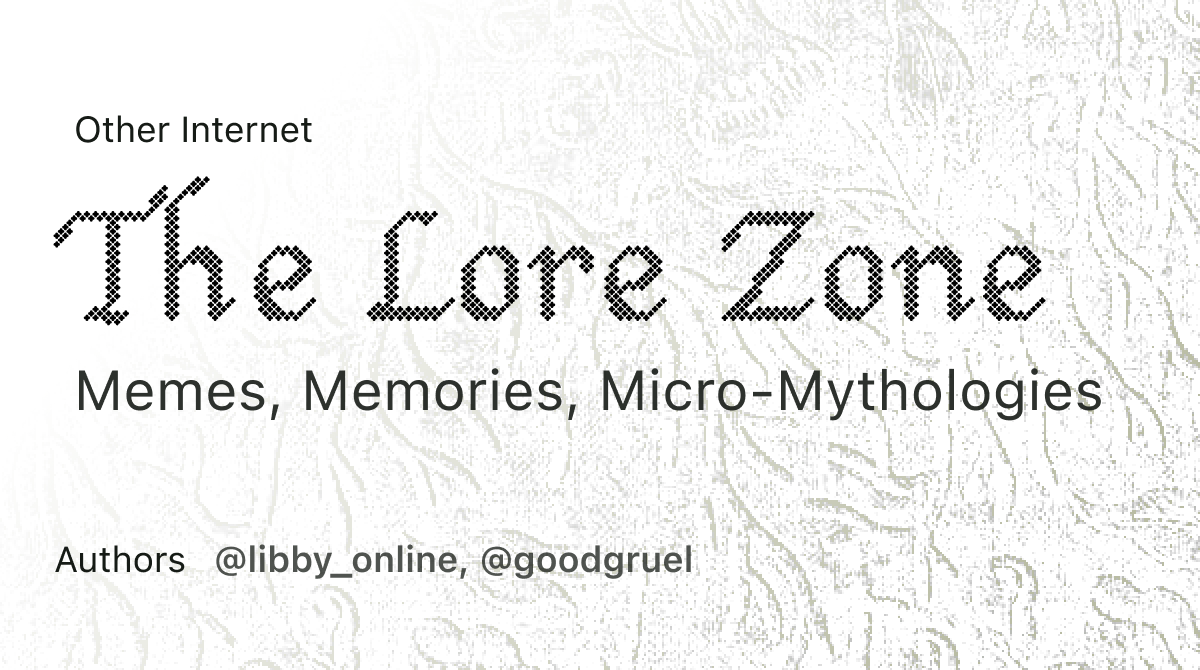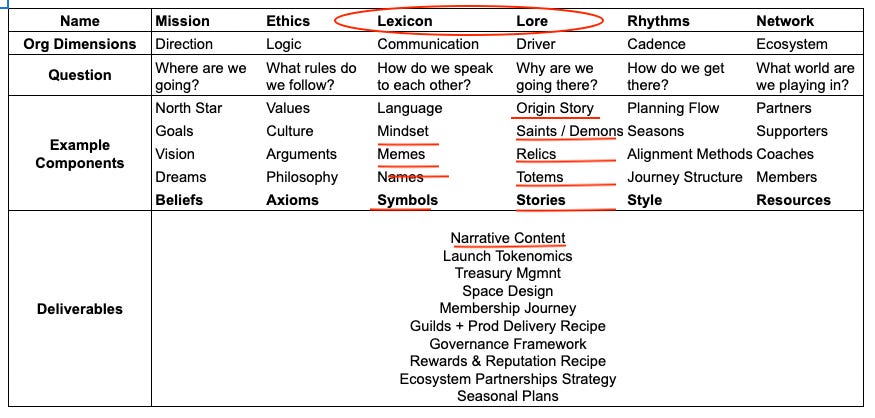Sublime
An inspiration engine for ideas
‘lore’—it’s a model of knowledge that is able to interface with both reality and fiction.
Libby Marrs • I Would Very Much Like To Be Excluded From This Lore
On Lore
docs.google.comLOADMORE
loadmo.re

Lore is something you witness, and attempt to shape as it emerges, if it emerges, not something you design and execute. You cannot, for instance, set out to write an origin myth. At least not one that will work as lore (though it may work as part of a grift). You can only recognize and institutionalize one.
Venkatesh Rao • Lands of Lorecraft
Worlds of Exile and Illusion: Three Complete Novels of the Hainish Series in One Volume--Rocannon's World; Planet of Exile; City of Illusions
amazon.com
A decade ago, lorecraft was largely limited to edgelords haunting online fora thinking up the next troll for lulz and electoral mayhem. Now lorecraft is being used to manage treasuries worth millions, launch complex commercial projects, and design automation deathstars for fun and profit.
Venkatesh Rao • Lands of Lorecraft
